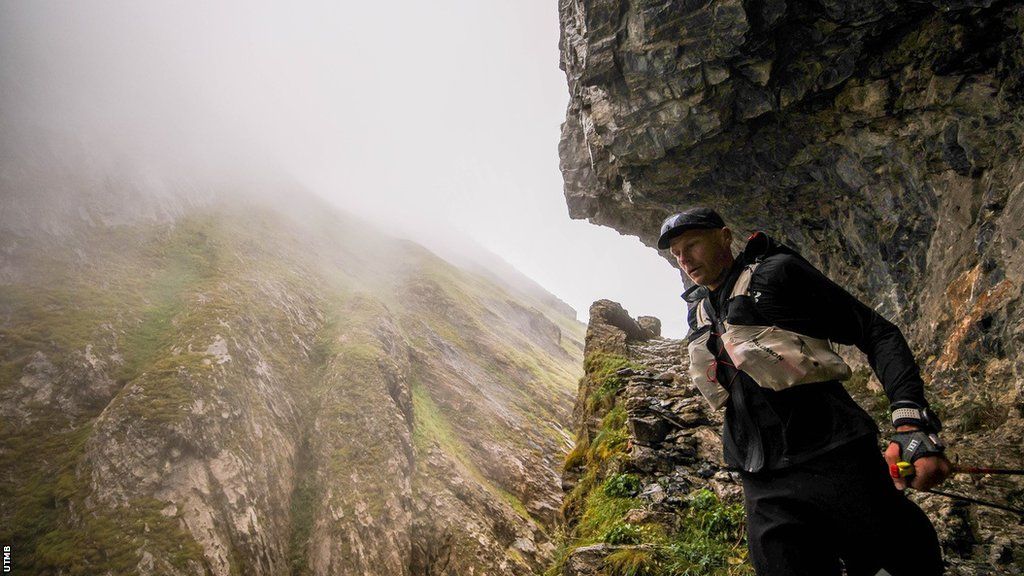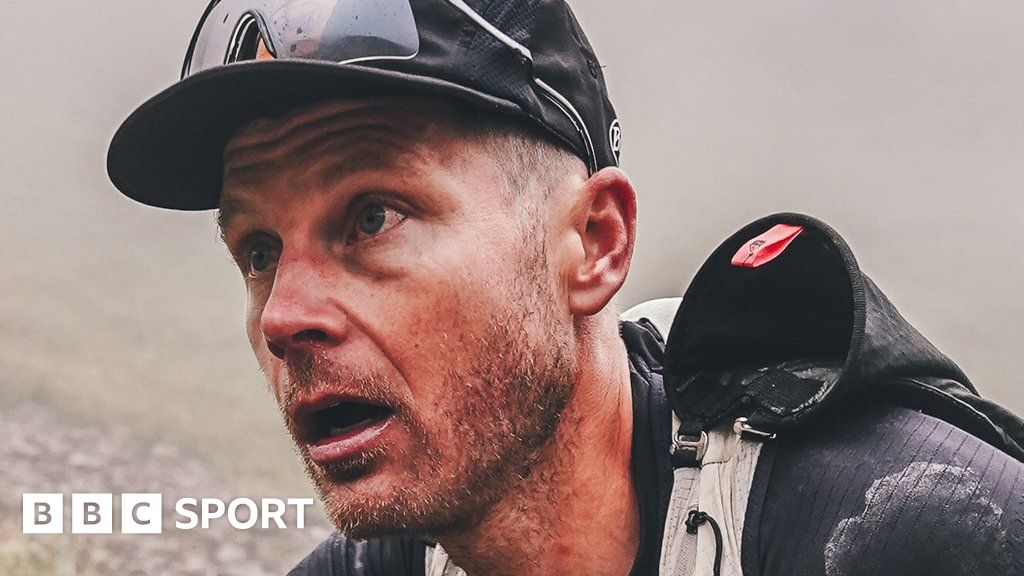
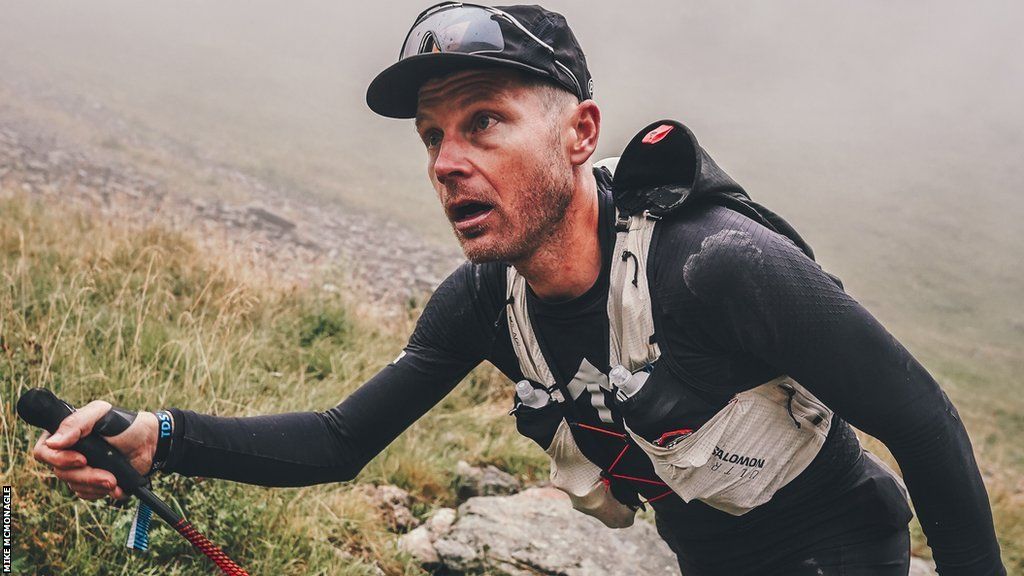
Sign up for notifications to the latest Insight features via the BBC Sport app and find the latest in the series here.
It is early spring 2021 in Girona, Spain in the middle of yet another Covid-19 lockdown.
Exercise is permitted, but only in the local municipality.
A recent retiree is, like millions of people all over the globe, taking his first steps into running in a bid to break the boredom.
He’s been riding his bike locally but is fed up with just pedalling “around the block”.
Within minutes of pulling on his trainers and leaving his apartment, he is aiming for the foothills of the Pyrenees.
And here’s where his story diverges from the typical lockdown tale of two-footed trudging.
Rather than struggle, the Canadian is relishing the moment, recognising a familiar power and strength in his legs as the trail climbs upwards and the mountains beckon beyond.
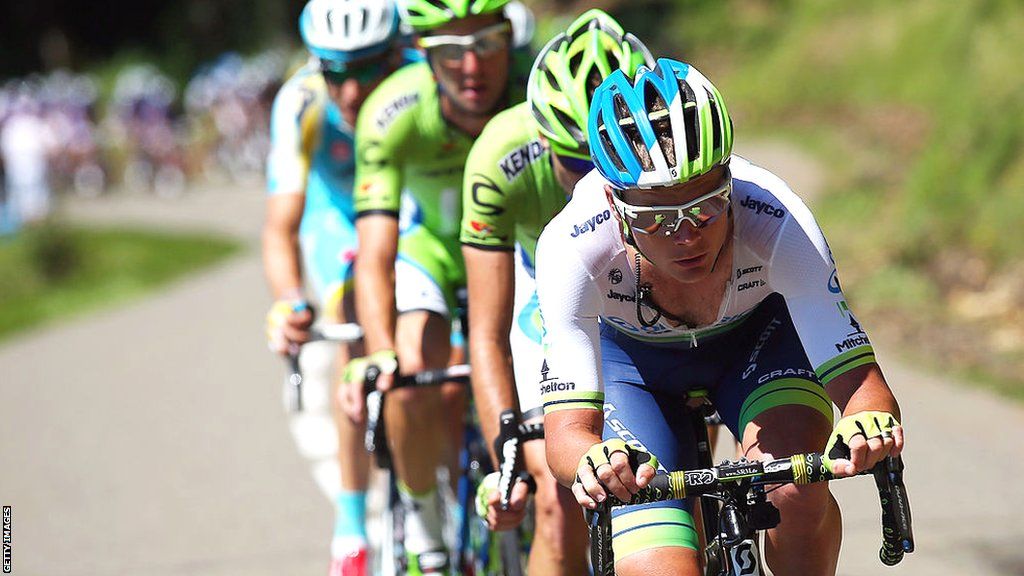
Christian Meier first felt that strength nearly 20 years earlier in Canada.
Growing up, he was a keen mountain biker. Living in the shadow of the Appalachians, he would head to the hills on two wheels, rather than two feet.
In the mid-2000s, he crossed the Atlantic and switched disciplines; moving to Europe to pursue a career in professional road cycling.
Meier was to race as a professional for more than 10 years, riding all three Grand Tours including the Tour de France, and becoming well known as a reliable domestique for a number of World Tour teams, latterly the Australian outfit GreenEdge.
The role of a domestique is to ride in service of others: to deliver the stars to the finish line in the best condition and position to sparkle.
Meier was not only good at it, but he also enjoyed the selflessness anonymity of riding for the good of his team leader rather than for himself. He wasn’t in it for victories.
“I wanted to be a domestique,” he says. “I just wanted to ride on the front, ride for a sprinter or pull on the climbs.”
He also relished the ‘flow state’ of endurance exercise – the feeling of being able to simply exist, in a state just below your physical limits.
“I don’t think I don’t necessarily like the word suffering,” he says.
“When people say you go out there and you just suffer all day, I think that’s kind of misunderstood.
“When I’m in my zone and out there doing my thing, in that context, suffering is actually not a good thing. I shouldn’t be suffering; I should be in control.
“I really enjoyed being in that zone. Each moment of flow is quite addictive because it’s such an incredible place to be. You are just in the moment, just focusing on what you’re doing right now.”
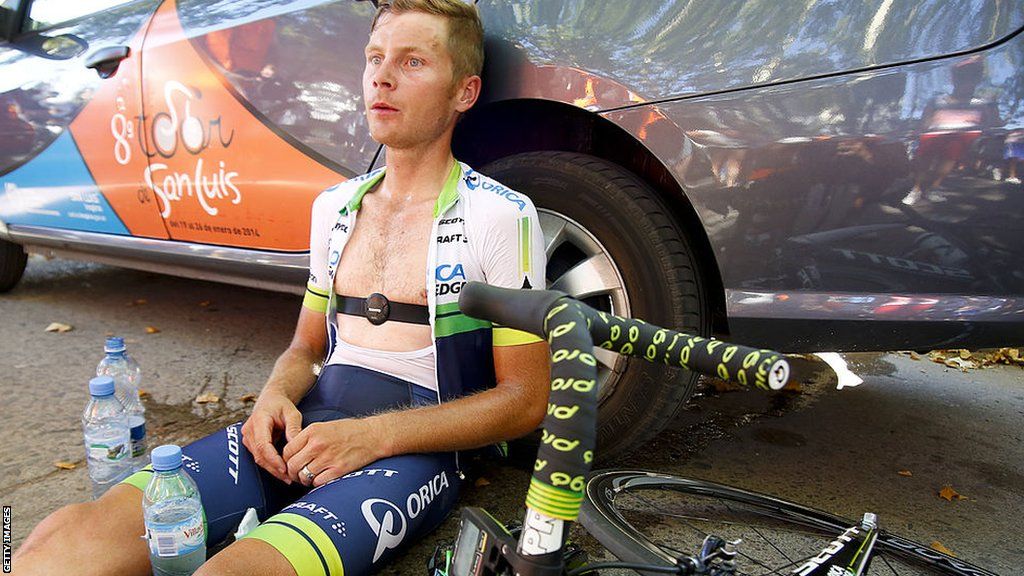
Fast forward to a warm, sunny day in early 2024 and Meier is back in his happy place, tapping out kilometres on the front of a group of athletes heading uphill.
He looks completely at home on the move. His relaxed face belies the physical exertion he is putting his followers through.
It all sounds very familiar, but there’s one crucial difference: Meier is not leading out a cycling peloton. Rather, it is a group of trail runners, heading up into the Girona hills.
From the beginning of his lockdown journey, Meier knew he was on to something – something new that had sprung from the old.
“Straight away there was this satisfaction of running uphill pretty well,” he said.
“From doing so much cycling, there were instantly things that I was good at.
“Going uphill, that was just power, and I was good at that.
“Spain had a pretty hardcore lockdown when we were first allowed out to exercise; you had to stay within the municipality. It didn’t make sense to even go riding. But you had the hills to go running in.
“Running meant you could have a good workout and not get bored riding around the same block.
“When I first started running, did I really think I’d get to the point of being a professional athlete again? Probably not.
“But following your heart, the evolution, and really loving it, loving the training again…it became a snowball that kept going.”
By his own admission Meier was not a winner on the bike.
But in the summer of 2023, only two years after his first steps proper on two trail-running feet, he won the prestigious TDS race in Chamonix.
It’s a 150km race from Courmayeur in Italy to Chamonix, France, which starts at midnight and has more than 9,000m of climbing. Last summer’s race, despite being run in June, featured snow and poor visibility, forcing the organisers to add eight kilometres to the route on safety grounds.
It is contested in the same week as the most famous trail running race of all – the Ultra Trail du Mont Blanc – and, in terms of prestige, is considered just one rung below.
Given many of his peers have been racing the trails for more than a decade, Meier sent shockwaves through the sport with his victory.
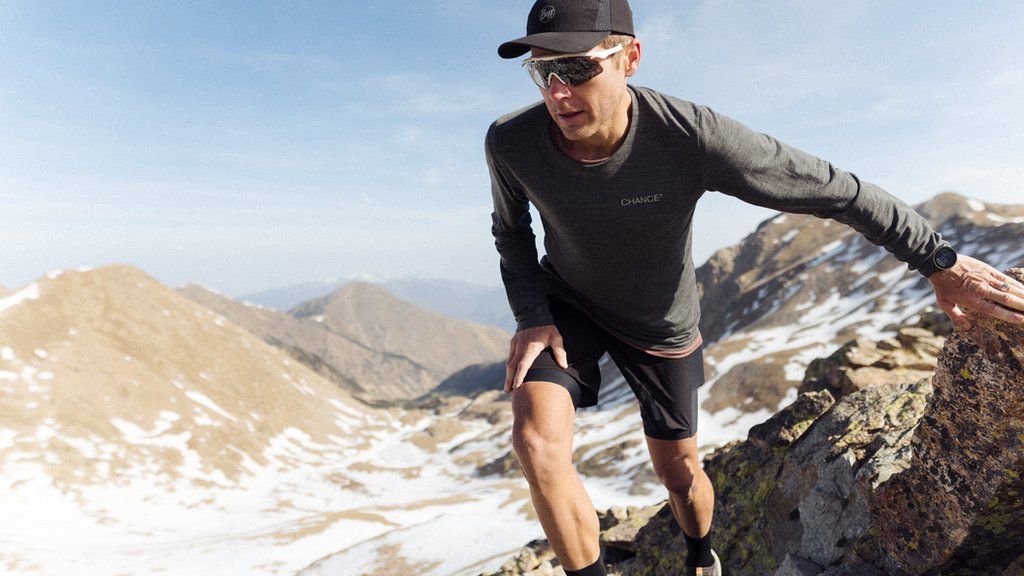
Meier is back from leading his Girona group run now and is busy making a drink.
We’re supposed to be discussing his running career but instead we’re talking coffee.
The brew is delicious. It illustrates a part of Meier’s character that has been integral to his burgeoning new career in trail running.
Meier loves to “geek out” on new things and is therefore fastidiously making drinks inside the first of two coffee shops that he owns and runs with his wife in Girona. He was still racing professionally when they set up the business in 2015.
He quit cycling a year later, aged just 31, in a sport where riders can continue into their forties. Despite having a year to run on a lucrative professional contract, coffee and entrepreneurship was his new obsession.
“It got to the point in cycling where I started to feel like I was doing the same races, and getting too comfortable,” he said then.
“l felt like I was no longer growing. At the same time, with coffee, everything was so new and so young and there was huge scope for me to grow and move forward.”
Speaking now, he adds: “I think it’s that Buddhist concept of just having a child’s mind more in your life. A child’s mind is full of curiosity; it has not yet had things imposed about what you can and can’t do.
“As a child, your imagination is: ‘I want to go to the moon’. But most people maybe pick something easier to do, you know?
“But I just have a mindset of firstly being a little naive and then, just going for it.
“Sometimes being naive helps you make those steps and then you figure out the roadblocks as you go.”
Meier’s running roadblocks were twofold.
His first issue was injury. In cardiovascular terms, he was in incredible shape to make the transition, with a huge capacity to absorb oxygen, lactic and pain.
But his body was underdeveloped for the demands that were now being placed on different muscle groups. The impact of sole hitting soil in his new sport caused Meier to break down on multiple occasions.
“When I started running, most of my life had been doing endurance sport. The cardio side of things is very transferable,” he says. “But from a muscular standpoint, it was terrible. I had so many injuries early on. I took a long time to adapt.
“Road cyclists are just weaklings to be honest.”
He also struggled to cope when the trails weren’t following an upward incline.
Meier’s entrepreneurship has extended to a sustainable clothing brand. He says his co-founder – an English businessman called Tom Austen, without any professional sporting pedigree – would “smash” him on their training runs if the terrain was right.
“I’d go running on the flat and people would just drop me,” Meier says.
“We were doing 10km time trials and Tom was beating me by 40 seconds.
“Tom was fit, but I’m definitely fitter. But he was smashing me on the flat. I realised I’ve got so much to learn.”
Typically, Meier leaned into the learning.
“I was reading, reading and reading about the sport, watching YouTube videos and doing whatever I could,” he says.
“I just wanted to absorb as much information as I could about this new thing.”
Meier coaches himself and is studying for his coaching badges. While he has discovered there is common ground between his new sport and cycling physiologically, tactically there is less.
“There’s not a lot of cunning about: How am I going to win today?” Meier says of his trail-running strategy.
“Essentially you just need to be as fit as possible. You show up and you run your strategy. That’s how ultrarunning works.
“If you see someone and they’re struggling a bit on the descent, maybe you push a bit there – but it’s not like cycling, where you might sit in the wheel all day.”
There is less cunning and still plenty of that child-like naivety.
“My first big race was 50 kilometres and I remember just thinking, man alive, I’m going to run 50 kilometres,” he remembers. “It felt insane. Then thinking about running 100 miles on foot in the mountains – the feeling of that is just wild. For a lot of people a 100-mile bike ride is a big ride.
“I didn’t ride bikes to win. So winning the TDS was definitely the highlight of my sporting career for sure.
“To win… it felt more like a dream.”
